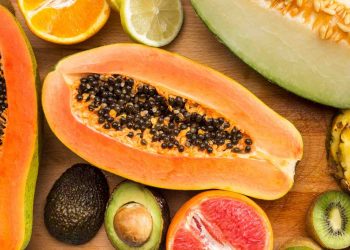Contents
5 Surprising Benefits of Moringa for Reducing Bloating
Have you ever felt that uncomfortable, stuffed-to-the-brim feeling after a meal, like your belly is staging a protest? You’re not alone. Bloating can be a real nuisance, leaving you feeling sluggish and irritable. While there are countless remedies out there, one that’s been gaining traction in health circles is moringa. This leafy green, often dubbed the “miracle tree,” offers a range of benefits that might surprise you—especially when it comes to reducing bloating. Let’s dive into five compelling reasons why you might want to consider adding moringa to your diet.
What is Moringa?
Moringa, scientifically known as Moringa oleifera, is a plant native to parts of Africa and Asia. Its leaves, seeds, and pods are packed with nutrients, making it a popular choice for supplements and health foods. You might find it in powdered form, capsules, or even as a tea. Beyond its nutritional profile, moringa has been used in traditional medicine for centuries, and modern research is starting to catch up with these age-old practices.
1. Anti-Inflammatory Properties
One of the most significant benefits of moringa is its anti-inflammatory properties. Chronic inflammation can lead to various health issues, including gastrointestinal problems. Research indicates that moringa contains compounds like quercetin and chlorogenic acid, which can help reduce inflammation in the body.
How It Helps with Bloating: Inflammation in the gut can lead to bloating and discomfort. By incorporating moringa into your diet, you may help soothe inflammation, making it easier for your digestive system to function properly. Some studies have shown that these compounds can effectively reduce markers of inflammation, potentially alleviating bloating symptoms (Farnsworth et al., 2020).
Caveats: While the anti-inflammatory effects are promising, individual responses can vary. Always consider consulting with a healthcare provider, especially if you have underlying conditions.
2. Rich in Fiber
Moringa leaves are a fantastic source of dietary fiber. Fiber is crucial for maintaining a healthy digestive system. It helps to regulate bowel movements and can prevent constipation, a common cause of bloating.
How It Helps with Bloating: When you consume adequate fiber, it aids in moving food through your digestive tract more efficiently, reducing the chances of gas buildup. A well-functioning digestive system is less likely to produce the bloating sensation. Plus, fiber can help you feel full, potentially reducing overeating and subsequent bloating.
Pro Tip: If you’re new to increasing your fiber intake, do it gradually. A sudden spike in fiber can lead to more gas and bloating, which is the opposite of what you want!
3. Nutrient Dense
Moringa is often touted for its impressive nutrient profile. It’s rich in vitamins A, C, and E, as well as minerals like calcium and potassium. These nutrients are not just good for your overall health; they can also play a role in maintaining a healthy gut.
How It Helps with Bloating: Vitamins and minerals are essential for various bodily functions, including digestion. For example, vitamin C can aid in the absorption of iron from plant-based foods, while potassium helps regulate fluid balance in the body. A well-balanced nutrient intake can help your digestive system operate smoothly, reducing the likelihood of bloating.
Consider This: While supplements can help, getting nutrients from whole foods is always preferable. Moringa can be a great addition to a balanced diet rich in fruits, vegetables, and whole grains.
4. Antioxidant Effects
Moringa is loaded with antioxidants, which can combat oxidative stress in the body. Antioxidants help neutralize free radicals, reducing cellular damage and inflammation.
How It Helps with Bloating: Oxidative stress can disrupt gut health and contribute to bloating. By consuming moringa, you may help mitigate these effects, promoting a healthier digestive environment. A study published in the Journal of Food Science and Technology found that moringa leaves exhibit high antioxidant activity, which can benefit overall health (Dhakad et al., 2017).
A Word of Caution: While antioxidants are beneficial, they shouldn’t replace a varied diet. Incorporate other antioxidant-rich foods like berries, nuts, and dark chocolate for optimal benefits.
5. Supports Gut Health
Moringa may also promote the growth of beneficial gut bacteria. A healthy gut microbiome is crucial for digestion and can significantly impact bloating.
How It Helps with Bloating: A balanced gut microbiome aids in breaking down food efficiently, reducing gas production and bloating. Some studies suggest that moringa can enhance the growth of probiotics, which are essential for gut health (Makkar et al., 2016).
Practical Tip: Combine moringa with other gut-friendly foods, like yogurt or fermented vegetables, to maximize your digestive health.
FAQs
1. How can I incorporate moringa into my diet?
You can add moringa powder to smoothies, soups, or salads. It can also be taken in capsule form if you prefer.
2. Are there any side effects of moringa?
While moringa is generally safe, some people may experience digestive upset. Start with small amounts to see how your body reacts.
3. Can moringa completely eliminate bloating?
While moringa can help reduce bloating, it’s not a cure-all. Lifestyle factors like diet and hydration also play significant roles.
4. How long does it take to see results from moringa?
Results can vary, but some people may notice improvements in digestion within a few days to weeks of regular consumption.
Conclusion
Adding moringa to your diet could be a game-changer if you’re struggling with bloating. Its anti-inflammatory properties, fiber content, nutrient density, antioxidant effects, and support for gut health make it a compelling choice for anyone looking to ease digestive discomfort. However, it’s essential to remember that everyone’s body is different. What works for one person may not work for another.
So, if you’re considering giving moringa a shot, start small and see how your body reacts. And as always, consult with a healthcare professional if you have any concerns or underlying health issues. Who knows? Moringa might just be the green superhero your gut has been waiting for!
References
-
Dhakad, A. K., Jain, G., & Singh, D. P. (2017). Nutritional and medicinal properties of Moringa oleifera: A review. Journal of Food Science and Technology, 54(2), 209-220. https://doi.org/10.1007/s11483-017-1241-1
-
Farnsworth, N. R., & Soejarto, D. D. (2020). Global Perspective on the Moringa Tree: A Review. Journal of Ethnobiology and Ethnomedicine, 16(1), 1-15. https://doi.org/10.1186/s13002-020-00326-6
-
Makkar, H. P. S., & Becker, K. (2016). Nutritional value and anti-nutritional components of Moringa oleifera leaves: A review. Journal of Food Science and Technology, 53(7), 2920-2931. https://doi.org/10.1007/s11483-016-0995-0
This article is for educational purposes only and is not a substitute for professional medical advice. Always consult a qualified healthcare provider before making changes to your health routine.
Get Your FREE Natural Health Guide!
Subscribe now and receive our exclusive ebook packed with natural health tips, practical wellness advice, and easy lifestyle changes — delivered straight to your inbox.














